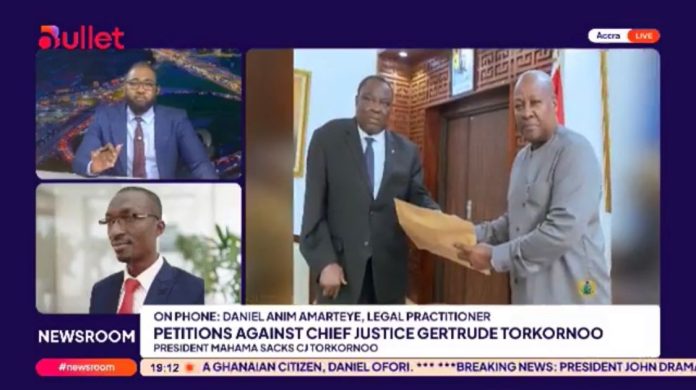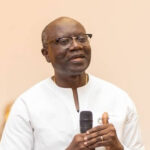Private legal practitioner, Daniel Anin Amarteye, has described the president’s recent activation of Article 146 to remove Ghana’s Chief Justice as constitutionally sound, but a potential threat to judicial independence.
Speaking on Bullet TV, Amarteye urged the Constitutional Review Committee to strip the presidency of such powers, citing the need to insulate the judiciary from political manipulation.
“Strictly speaking, the president acted within the confines of the law. He only activated a constitutional process triggered by a recommendation. Legally, he’s done nothing wrong,” Amarteye said. “But the problem lies in the system that gives him such authority in the first place. That’s where the danger is.”
A Constitutional Lacuna with Dangerous Precedents
Amarteye emphasized a “lacuna” in Article 146 of the 1992 Constitution, warning that it creates a constitutional gap that could be exploited by future presidents for political gain.
“Tomorrow, if I become president or you become president, and we are not satisfied—whether real or imagined—by the Chief Justice’s conduct, we can trigger their removal. That is very fatal for our democracy,” he cautioned.
He argued that although Ghana’s judiciary remains technically independent, its operational framework still allows for excessive political influence, particularly when it comes to the appointment and removal of top judicial officers.
Amarteye proposed a radical rethinking of the process, suggesting that any petition to remove a Chief Justice should be vetted and initiated by a Judicial Committee made up of retired, respected justices and representatives from the Ghana Bar Association—not the executive.
“We need a new arrangement where political actors are removed entirely from the removal process. The Judicial Council or a new Judicial Committee should handle prima facie determinations, not the President or even the Council of State, which has become too political under the current structure,” he said.
According to him, such a reform would protect the judiciary’s integrity and ensure continuity in democratic governance.
By Ebenezer Madugu






